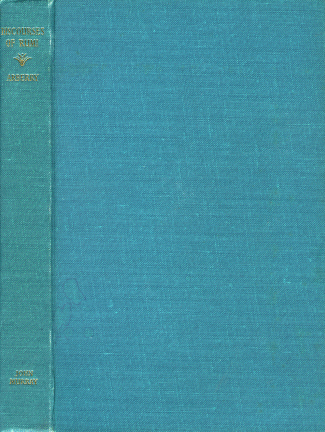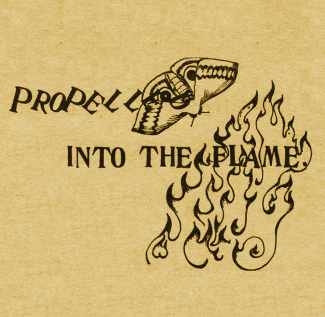translated by A. J. Arberry
First published 1947
NOTICE: THIS WORK MAY BE PROTECTED BY COPYRIGHT
YOU ARE REQUIRED TO READ THE COPYRIGHT NOTICE AT THIS LINK BEFORE YOU READ THE FOLLOWING WORK, THAT IS AVAILABLE SOLELY FOR PRIVATE STUDY, SCHOLARSHIP OR RESEARCH PURSUANT TO 17 U.S.C. SECTION 107 AND 108. IN THE EVENT THAT THE LIBRARY DETERMINES THAT UNLAWFUL COPYING OF THIS WORK HAS OCCURRED, THE LIBRARY HAS THE RIGHT TO BLOCK THE I.P. ADDRESS AT WHICH THE UNLAWFUL COPYING APPEARED TO HAVE OCCURRED. THANK YOU FOR RESPECTING THE RIGHTS OF COPYRIGHT OWNERS.

Table of Contents:
• Preface
• Introduction
• Discourses 1-10
• Discourses 11-20
• Discourses 21-30
• Discourses 31-40
• Discourses 41-50
• Discourses 51-60
• Discourses 61-71
• Notes
Jalal al-Din Rumi, surely the greatest mystical poet in the history of mankind.
***
[ON PROSE]
I am affectionate to such a degree that when these friends come to me, for fear that they may be wearied I speak poetry so that they may be occupied with that. Otherwise, what have I to do with poetry? By Allah, I care nothing for poetry, and there is nothing worse in my eyes than that. It has become incumbent upon me, as when a man plunges his hands into tripe and washes it out for the sake of a guest's appetite, because the guest's appetite is for tripe.
***
If a man is alongside of his own need, he will also be alongside of the one who gives him that need; if he is constantly attached to his own toggle, he will be constantly attached to the one who draws the toggle. Except that his eyes are fixed on the toggle, so that he is without might and strength; if his eyes were fixed on him who draws the toggle, he would escape from the toggle, the toggle now being the one who draws his toggle. For he was toggled so that he should not proceed towards the toggle-drawer without the toggle. His eyes are not fixed upon Him who draws the toggle, so of course we shall brand him upon the muzzle. We shall fix a toggle upon his nose and draw him against his will, since without a toggle he does not come towards Us.
***
How wonderfully gracious He is! He sets a seal on him, who listens and does not understand, argues and does not understand. God is gracious, and His wrath is gracious, and His lock is gracious, but not like His lock is His unlocking, for the grace of that is indescribable. If I break myself into pieces, that will be through the infinite grace and will of His unlocking and incomparable opening.
***
So it is not necessary to become wholly preoccupied with worldly affairs. One must take them easily, and not be in bondage to them, lest this should fret and that should fret. The treasure must not fret; for if these things should fret, that will transform them; whereas if that frets (we seek refuge with God!) who then will transform that? If for instance you have many kinds of cloth of every sort, when you are absorbed, why, which of them will you clutch? Though all are indispensable, yet it is certain that in the bundle you will lay hands on something precious and to be treasured; for with one pearl and a single ruby one can make a thousand decorations.
***
Though they are powerful, pluck out their beards politely;
Firmly break their necks, though they are high and mighty.
[ON MISOGYNY]
By enduring and putting up with the tyranny of women it is as though you rub off your own impurity on them. Your character becomes good through forbearance, their character becomes bad through domineering and aggression. When you have realised this, make yourself clean. Know that they are like a garment; in them you cleanse your own impurities and become clean yourself.
If you cannot succeed with yourself, deliberate with yourself in a rational way as follows. 'Let me pretend that we have never been married. She is a whore. Whenever lust overmasters me I resort to her.' Thus rid yourself of manly pride and envy and jealousy, until such time that beyond such deliberation you experience pleasure in struggling and enduring, and in their absurdities discover spiritual joy.
***
A certain dervish had a disciple who used to beg for him. One day out of the yield of his begging he brought some food to his master. The dervish ate the food. That night he experienced nocturnal emission.
'From whom did you bring that food?' he asked the disciple.
'A lovely girl gave it to me,' the disciple answered.
'By Allah,' rejoined the dervish, 'it is twenty years since I had a nocturnal emission. This was the effect of her morsel.'
This shows that the dervish must be cautious and not eat the morsel of everyone. For the dervish is delicate; things have their effect on him and become visible, just as a little blackness shows on a clean white gown; as for a black gown which has become black with grime for many years and has lost all whiteness, if a thousand kinds of filth and grease should trickle on it it would not appear on it to the people. This being so, the dervish must not eat the morsel of sinners and those who live on iniquity, and of materialists. For the morsel of such a man has an effect on the dervish, and corrupt thoughts manifest under the influence of that strange morsel -- so that the dervish had nocturnal emission through consuming the food of that girl.
***
The Koran is as a bride who does not disclose her face to you, for all that you draw aside the veil. That you should examine it, and yet not attain happiness and unveiling, is due to the fact that the act of drawing aside the veil has itself repulsed and tricked you, so that the bride has shown herself to you as ugly, as if to say, 'I am not that beauty.'
[ON ANTI-SEMITISM]
It is related that a certain Jew lived next door to one of the Companions of God's messenger. This Jew lived in an upper room, whence descended into the Muslim's apartment all kinds of dirt and filth, the piddle of his children, the water his clothes were washed in. Yet the Muslim always thanked the Jew, and bade his family do the same. So things continued for eight years, until the Muslim died. Then the Jew entered his apartment, to condole with the family, and saw all the filth there, and how it issued from his upper room. So he realised what had happened during the past years, and was exceedingly sorry, and said to the Muslim's household, 'Why on earth didn't you tell me? Why did you always thank me?' They replied, 'Our father used to bid us be grateful, and chided us against ceasing to be grateful.' So the Jew became a believer.
***
[ON WARFARE, MURDER AND TORTURE]
The Prophet, God bless him and grant him peace, had defeated the unbelievers, slaying and plundering and taking many prisoners whom he had fettered hand and foot. Amongst the prisoners was his uncle 'Abbas, may God be well pleased with him. They were weeping and wailing all the night through in their chains and helpless humiliation and had given up all hope of their lives, expecting the sword and slaughter. The Prophet, upon whom be peace, looked at them and laughed.
'Did you see?' the prisoners exclaimed. 'He has the attributes of a man after all. That claim of his, that he was superhuman, was contrary to the truth. There he is; he looks at us and sees us prisoners in these chains and fetters, and rejoices. So it is with all men governed by their passions -- when they get the victory over their enemies and see them vanquished to their will, they rejoice and make merry.'
'Not so,' answered the Prophet, God's blessings be upon him, perceiving what was in their hearts. 'Far be it from me that I should laugh because I see my enemies vanquished to my will, or because I see you come to grief. It is for this reason that I rejoice, indeed I laugh, because I see with the inward eye that I am dragging and drawing a people by main force, by collars and chains, out of the fiery furnace and black smoke of Hell unto Paradise and Ridwan and the Eternal Garden of Roses; while they lament and cry aloud, saying, "Why are you drawing us out of this pit of destruction into that rose-bower and place of security?" So laughter overcomes me. For all that, inasmuch as you have not yet been given the vision to discover and behold this that I say, God commands me: "Say to the prisoners: First you gathered together your hosts and mustered much might, trusting completely in your virtue and valour and panoply. You said amongst yourselves, so we will do; we will conquer the Muslims so, and will vanquish them. You did not see One Omnipotent who is more powerful than yourselves, you did not know of One All-forceful above your force. So inevitably all that you planned to do turned out opposite to your designs. Even now that you are in fear, you have not repented of your old distemper; you are in despair, and do not see One Omnipotent over you. Therefore it behoves you forthwith to behold My might and strength, and to know yourselves to be vanquished to My will, so that all things may be made easy for you. Do not despair of Me, even in your present fear; for I am able to deliver you out of this fear and to make you secure. He who is able to produce out of a white bullock a black bullock is also able to bring forth out of a black bullock a white bullock. [He] brings forth the dead from the living.
***
Therefore the Prophet, God's blessings be upon him, said, 'I laugh as I slay.' That is, 'I have no enemy' -- that he should be angry in chastising him. He kills the unbeliever in one way, so that the unbeliever may not kill himself in a hundred manners. So of course he laughs as he slays.
***
For some time the Companions prayed secretly and pronounced in secret the name of Muhammad, God bless him and give him peace. Then after a while the revelation came: 'You too unsheathe the sword and make war!'
***
So realise that in this world things happen as He wills, that His is the design and that the purpose is subject to Him....
'Umar was a mighty and powerful and manly man; any army he marched against he surely vanquished, exposing their decapitated heads; so much so, that the Prophet declared always, God bless him and give him peace, 'God, succour my religion by means of 'Umar or Abu Jahl.' For those two were famous in his time for strength and manliness and heroism....
Having become a Muslim, ['Umar' said, 'Now, in thanksgiving for having come against you with a naked sword and in expiation therefor, henceforward I will give quarter to no man whom I hear speaking improperly of you. With this sword I will strike his head apart from his body.' Coming out of the mosque, he suddenly encountered his father. His father said, 'You have changed religion.' Immediately he struck off his head, and walked on holding in his hand the bloodstained sword.
***
This way of poverty is a way in which you attain all your desires. Whatsoever thing you have longed for will certainly come to you on this way, whether it be the shattering of armies, victory over the enemy, capturing kingdoms, reducing people to subjection, excelling your contemporaries, elegance of speech, eloquence, and all that is like to this.
***
Just now we have been discussing this question: if one man has a family and another man has none, should one cut away from the former and give to the latter? Literalists say that you cut away from the poor family man and give to the other; when you consider the matter well, he himself in reality is a poor family man. It is the same with the spiritualist who possesses a jewel. He strikes a man and breaks his nose and jaw. Everyone says that the latter is the wronged party. But in reality the wronged party is the one striking the blow; the man doing wrong is he who does not act in his best interests. The one who has been punched and got his head broken is the wrongdoer, and the striker is assuredly the wronged party. Since he is the owner of the jewel, since he is consumed in God, his actions are God's actions. God is not called a wrongdoer. The Prophet too, God bless him and give him peace, killed and spilled blood and raided; yet they were the wrongdoers, and he was the wronged.
***
[ON SADISM AND MASOCHISM]
The Master said: It is good if you are helpless all the time and at every moment, and see yourself helpless in the state of capacity just as in the state of incapacity. For above your capacity there is a greater Capacity, and you are vanquished to God's will in every state. You are not divided into two halves, now capable and now helpless. Pay regard to His Capacity, and know yourself to be helpless always, without hand and foot, poor and utterly incapable.
***
'Love continues so long as reproof continues': one reproves friends, but one does not reprove a stranger....When a carpet is beaten to get rid of the dust, men of sense do not call that a 'reproof'; but if a man beats his own child and darling, then that is called a 'reproof' and is a proof of love. Therefore so long as you perceive pain and regret within yourself, that is a proof that God loves you and cares for you.
***
If the saints seek worldly rank and elevation, it is for this purpose: they desire to snare the worldlings, who have not the vision to behold their true elevation, in the trap of worldly rank so that they may find their way to that other elevation and fall into the trap of the world to come....The saints beguile men in order to bestow gifts on them, not in order to take anything from them.....
When a man lays a trap and by cunning catches little birds in his trap so as to eat them and sell them, that is called cunning. But if a king lays a trap so as to capture an untutored and worthless hawk which has no knowledge of its own true nature, and to train it to his own forearm so that it may become ennobled and taught and tutored, that is not called cunning. Though to outward seeming it is cunning, yet it is known to be the very acme of rectitude and bounty and generosity, restoring the dead to life, converting the base stone into a ruby, making the dead sperm into a man and far more than that. If the hawk knew for what reason men seek to capture it, it would not require any bait; it would search for the trap with soul and heart and would fly on the king's hand.
***
Those infidels who are fixed in unbelief -- after all, they suffer because of their unbelief. Yet when we look at the matter again, that suffering too is itself a Divine grace. When the unbeliever is left at ease he forgets the Creator; so God reminds him by means of suffering. Therefore Hell is a place of worship, and is the mosque of the infidels, for there the unbeliever remembers God; just as in prison and suffering and toothache -- when the pain comes, it tears away the veil of forgetfulness. The sufferer acknowledges God and makes lamentation, saying, 'O Lord, O Compassionate One, a God!' He is healed; then the veils of forgetfulness descend again and he says, 'Where is God? I cannot find him. I cannot see Him. What should I look for?'
How is it that when you were suffering you saw and found, and now you do not see? Since therefore you see when you suffer, suffering is made to prevail over you to the end that you may recollect God. The inmate of Hell was forgetful of God in the time of his ease and did not remember God; in Hell he recollects God night and day. God created the world, heaven and earth, moon and sun and stars, good and evil, that they might remember Him and serve Him and proclaim His praise. Inasmuch as the unbelievers in the time of their ease do not do this, and since their purpose in being created was to recollect God, therefore they go to Hell in order that they may remember Him. Believers however have no need to suffer; in their time of ease they are not unmindful of that suffering and see that suffering constantly present. In the same way once an intelligent child has had its feet put in the stocks that is enough, he never forgets the stocks. The stupid child however forgets, and must therefore be put in the stocks every moment. So too the clever horse, once it has felt the spur, does not require the spur again; he carries the rider for many leagues and does not forget the sting of the spur. The stupid horse however requires the spur every moment; he is not fit to carry a man, so they load him with dung.
***
Evil character and wickedness of soul and the vilenesses which are in man are according to a secret essential element which is in him. Those characteristics and vilenesses and evil are a veil over that element. The more precious and venerable and noble that element is, the greater are its veils.
***
[ON NIHILISM]
In God's presence two I's cannot be contained. You say 'I' and He says 'I': either do you die before Him, or He will die before you, so that duality may not remain. But as for God's dying, that is both impossible and inconceivable; for He is the Living, the Immortal. So gracious is He, that if it were at all possible He would die for your sake, so that duality might vanish. Now since it is not possible for Him to die, do you die so that He may reveal Himself to you and so that duality may vanish.
Tie two birds together, and despite their congeneity and the fact that their two wings have been changed to four they will not fly. That is because duality persists. But if you tie a dead bird to a living bird it will fly, because duality no longer remains.
The sun is so gracious that it would gladly die before the bat. But as that is not possible the sun says, 'O bat, my grace is universal. I desire to favour you too. So do you die, since it is possible for you to die, so that you may partake of the light of my glory and be metamorphosed out of your bathood and become the Simurgh of the Mount Qaf of propinquity.'
There was a servant of God who had the power to destroy himself for the sake of a friend. He prayed to God for such a friend, but God did not accept his petition. 'I do not wish that you should see him,' came a voice. That servant of God persisted, and would not refrain from his petition, saying, 'O God, Thou hast implanted this desire for him, and it does not depart out of me.' Finally a voice came saying, 'Do you desire that this should come to pass? Sacrifice your self, and become nothing. Do not tarry, and depart out of the world.' 'Lord, I am well content,' that servant cried. So he did: he gambled away his life for the sake of that Friend, so that his desire was accomplished.
***
Shaikh Sar-razi, God's mercy be upon him, was seated one day amongst his disciples. One of the disciples had a longing for some roasted sheep's head. The Shaikh signalled, saying, 'You must bring him some roasted sheep's head.'
'How did you know that he wanted some roasted sheep's head?' the disciples asked.
'Because it is now thirty years that no desire has remained in me,' the Shaikh answered. 'I have cleansed and purified myself of all desires and have become clear as an unscratched mirror. When the thought of roasted sheep's head entered my mind and whetted my appetite and became a desire, I knew that that belonged to our friend yonder. For the mirror is without any image of itself; if an image shows in the mirror, it is the image of another.'
***
If a man runs, when he runs for the sake of the world to come he is truly seated; if he is seated, if he is seated for the sake of the present world he is running.
***
Do you not see that when a man is awakened, he becomes indifferent to the world also and grows cold; he also melts and perishes.
***'
The human being is like a dunghill, a heap of manure.
***
Why now do you regard this body? What connexion have you with this body? You subsist without it. You are always without it. If it is night, you have no care for the body; while if it is day, you are preoccupied with your affairs. You are never with the body. So why do you tremble over this body, seeing that you are not with it for a single hour, but are always elsewhere? Where are you, and where is the body? 'You are in one valley, and I am in another.' This body is a great deception; it thinks that it is dead, and it is dead too. Why, what connexion have you with the body? It is a great hoodwink. Pharaoh's magicians, inasmuch as they had paused like a mote, sacrificed their bodies, for they perceived themselves to be subsisting without this body and that the body had no connexion with them. In the same way Abraham and Ishmael and all the prophets and the saints, having paused, were indifferent to the body and whether it existed or no.
***
[W]hen Mansur's friendship with God reached its utmost goal, he became the enemy of himself and naughted himself. He said, 'I am God'; that is, 'I have passed away, God alone has remained.' This is extreme humility and the utmost limit of servanthood, for it means 'He only is.' Pretension and arrogance consists in your saying, 'Thou art God, and I am Thy servant.' For by saying this you have affirmed your own existence, and dualism ensues necessarily. If you say, 'He is God,' that too is duality; for until 'I' exists 'He' is impossible. Therefore it was God who said, 'I am God,' since other than He was not in existence and Mansur had passed away. Those words were God's words.
***
Die before you die'
***
Why indeed should I speak only of things that have being? Not-being too is in commotion, expectant that He will give them being. Non-entities are just like four persons ranged before a king. Each one desires and expects that the king will confer on him a special rank, and each one feels shy of the other because his expectation is contrary to the other. So the non-entities, being ranged in expectation of being brought into being by God -- 'Make me to be!' -- and desiring of the Creator each to be the first to be brought into being, therefore feel shy of one another. If the non-entities are in such a case, how should the things which have being be?
***
There is no doubt that this world is a world of winter. Why is the name 'solid' given to inanimate things? Because they are all solidified. These stones and mountains, and the garments worn by the entity, are all solidified. If this world is not a world of winter, why are they solidified? The inner substance of this world is elementary; though itself invisible, by its effects it can be known that it is wind and bitter cold.
It is like the season of winter, when all things are solidified. What manner of winter is it? Winter of the reason, not of the senses. When that Divine zephyr comes along the mountains begin to melt, the world turns to water; just as when the warmth of July comes along, all things solidified begin to liquefy. On the resurrection day when that zephyr blows, all things will melt away.
***
Now all these other men are as bodies in relation to the saints and the prophets, who are the heart of this world. First they journeyed to the other world, coming out of their human attributes, the flesh and the skin. They surveyed the depths and heights of that world and this and traversed all the stages, so that it became known to them how one must proceed on that way. Then they came back and summoned mankind, saying, 'Come to that original world! For this world is a ruin and a perishing abode, and we have discovered a delightful place, of which we tell you.'
***
'This world is as the dream of a sleeper.' This world and its delights is as though a man has eaten a thing whilst asleep. So for him to desire worldly needs is as if he desired something whilst sleeping and was given it; in the end, when he is awake, he will not be profited by what he ate whilst asleep'.
***
God has bought from the believers their selves and their possessions against the gift of Paradise.
***
Intelligent men fly on the wings of their aspirations away from all directions.
***
[ON ANIMALS]
I saw him in the form of a wild animal, upon him the skin of a fox. I made to seize him, and he was on a small balcony, looking down the stairs. He raised his hands, leaping about like this and that. Then I saw Jalal al-Tibrizi with him in the form of a stoat. He shied away, and I seized him, while he was making to bite me. I put his head under my foot and squeezed it hard, until all its contents came out. I looked at the fineness of his skin and said, 'This deserves to be filled with gold and precious stones, pearls and rubies, and things even more excellent than that.' Then I said, 'I have taken what I wanted. Shy away, shy one, where you will, and leap in whatever direction you see fit!'
He leaped about because he feared to be mastered; and in being mastered his true happiness resided.
***
Many a man there is who is outwardly a wreck, who has neither good looks nor elegance of speech nor eloquence, yet there is in him that vital element which is immortal. It is by that element that man is ennobled and honoured, and by means of that he is superior to all other creatures. Leopards and crocodiles, lions and the rest of creatures, all have their peculiar skills and accomplishments; but that vital element which will survive for ever is not in them.
***
In man are many things. There is mouse, and there is bird. The bird carries the cage upwards, while the mouse drags it downwards. A hundred thousand different wild beasts are together in man, except that they are proceeding to the point when the mouse will renounce its mousehood and the bird its birdhood and all become one.
***
Outside this world of which we are speaking there is another world for us to seek. This world and its delights cater to the animality of man; these all feed his animality, whilst the root principle, man, goes into a decline. After all, they say, 'Man is a rational animal.' So man consists of two things. That which feeds his animality in this material world is these lusts and desires. But as for that which is his true essence, its food is knowledge and wisdom and the sight of God. The animality in man flees away from God, whilst his humanity flees away from this world.
***
[ON GRACE]
Truly, when I renounce all thought of silver and food and raiment and the fire of lust, my daily portion will come to me. But when I run after those daily portions, the quest of them pains and wearies me and distresses me; if I sit in my own place with patience, that will come to me without pain and distress. For that daily portion is also seeking after me and drawing me; when it cannot draw me it comes to me, just as when I cannot draw it I go after it.'
***
Since therefore God's bountifulness is so renowned and all the world is aware of His graciousness, why do you not beg of Him and hope to receive from Him a robe of honour and a rich gift? You sit in indolence saying, 'If He wills, He will give to me'; and so you importune Him not at all. The dog, which is not endowed with reason and comprehension, when it is hungry and has no bread comes up to you and wags its tail as if to say, 'Give me bread, I have no bread and you have bread.' That much discrimination it possesses. After all, you are not less than a dog, which is not content to sleep in the ashes and say, 'If he wills, he will give me bread of himself,' but entreats and wags its tail. So do you wag your tail, and desire and beg of God; for in the presence of such a Giver, to beg is mightily required. If you have no good fortune, ask for good fortune from One who is not niggardly, One who possesses great wealth.
***
[ON GNOSTICISM, AUTHORITARIANISM & FIRE WORSHIP]
God most High is far too exalted to have kith and kin. He has not begotten, and has not been begotten. No man has ever found the way to Him save through servanthood. God is the All-sufficient; you are the needy ones. It is not feasible for you to say of the person who has found the way to God, 'He was more God's kin, more His familiar, more connected with Him than I.' So nearness to God is not to be attained save through servanthood.
***
If you cannot go by the Muhammadan way, at least go by the way of Jesus, that you may not remain altogether outside the pale.
***
Whoever says evil of the gnostic in reality says good of the gnostic; for the gnostic shies away from that quality, blame for which might settle on him. The gnostic is the enemy of that quality; hence, he who speaks evil of that quality speaks evil of the enemy of the gnostic and praises the gnostic; for the gnostic shies away from such a blameworthy thing, and he who shies away from the blameworthy is himself praiseworthy. Things become clear through their opposites.' Hence the gnostic knows that the critic is not really his enemy and his dispraiser.
******
God does not speak to everyone, just as the kings of this world do not speak to every weaver; they have appointed a vizier and a deputy to show the way to the king. God most High also has chosen a certain servant, so that whosoever seeks God, God is in him. All the prophets have come for this reason, that only they are the way.
***
'He created Adam in His likeness,' that is, in the likeness of His rules.
***
Every moment we receive a slap from the unseen world. Whatever we propose to do, we are kept away from it by a slap and we take another course. As the saying goes, 'We have no power of our own, it is all a swallowing up and a vomiting.' It is also said, 'It is easier to cut the joints than to cut a connexion.' The meaning of 'swallowing' is descending into this lower world and becoming one of its people; the meaning of 'vomiting' is dropping out of the heart. For instance, a man eats some food and it turns sour in his stomach, and he vomits it. If that food had turned sour and he had not vomited it, it would have become a part of the man.
Even so a disciple courts and dances service so as to find a place in the heart of the shaikh. Anything issuing from the disciple (God be our refuge!) which displeases the shaikh and is cast forth out of his heart is like the food which the man eats and then vomits. Just as that food would have become a part of the man, and because it was sour he vomited it and cast it forth, so that disciple with the passage of time would have become the shaikh, and because of his displeasing conduct he cast him out of his heart.
Thy love made proclamation to the world
And every heart into confusion hurled,
Then burnt all up and into ashes turned
And to the indifferent wind those ashes spurned.
In that wind of indifference the atoms of the ashes of those hearts are dancing and making lament. If they are not so, then who ever conveyed these tidings and who is it that every moment anew brings these tidings? And if the hearts do not perceive their very life to consist in that burning up and spurning to the wind, how is it that they are so eager to be burned? As for those hearts which have been burned up in the fire of worldly lusts and become ashes, do your hear any sound or see any lustre of them?
***
Out of the fiery furnace roses and a rose-bower sprang up.
***
Into thy hands we have given the reins of our heart;
Whate'er thou declarest cooked, we declare it is burnt!
***
Every acquisition such a man has made in corrupting thought now becomes a power in reforming thought. Thus, a cunning thief repented and became a policeman. All the trickeries of thieving which he practised now became a power for beneficence and justice. He is superior to all other policemen who were not thieves to begin with; for the policeman who has committed acts of theft knows the ways of thieves; the habits of thieves are not hidden from him. If such a man becomes a shaikh, he will be perfect, the Elder of the world and the Mahdi of the age.
***
Thoughts have their effect, since through one feeble and muddled thought so many thousands of men and worlds are prisoners.... where do they stand, compared with thoughts mighty, infinite, weighty, holy, sublime?







